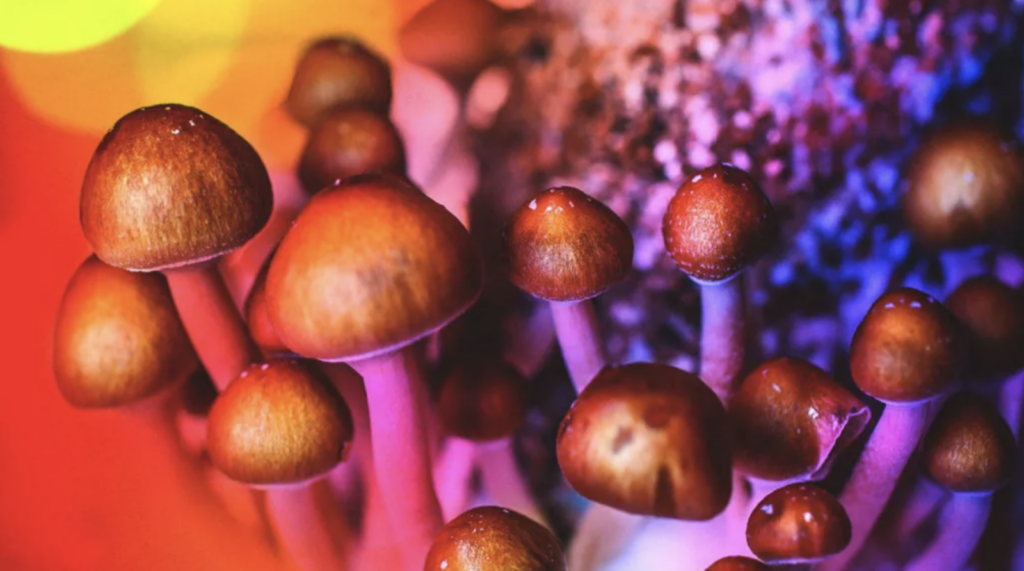
A new bill was introduced in Hawaii last week on Jan. 24, which aims to establish a regulatory framework for therapeutic psilocybin if passed. However, in its current form, the bill would help protect patients who choose that form of medicine, rather than fully legalize psilocybin.
Senate Bill 3019 was introduced by Sen. Chris Lee on Jan. 24, and a companion bill, House Bill 2630, was introduced on Jan. 23 by 14 representatives. “…the purpose of this Act is to ensure that people who struggle with trauma and treatment-resistant mental health ailments are not penalized by the State for the use of psilocybin for therapeutic purposes when the patient’s licensed mental health professional provides a professional recommendation that the benefits of therapeutic use of psilocybin would likely outweigh the health risks for the qualifying patient,” the bill stated.
Additionally, should any psilocybin products or paraphernalia be seized by law enforcement and a defendant proves in court that they consume legally through the program, law enforcement would be forced to return the products. However, if any patient attempts to claim they use psilocybin for therapeutic purposes to avoid arrest, they will be charged $500.
According to SB 319, the benefits of the bill would be limited to those who have a high school diploma or equivalent degree, are currently 21 years or older, must be a resident in Hawaii, and would have to undergo a “psychedelic integration training program” that has been approved by the Office of Wellness and Resilience (OWR).
Once a person qualifies, they could potentially gain access to psilocybin treatment if they suffer from any of the following conditions: “post-traumatic stress disorder (PTSD), treatment-resistant depression or major depressive disorder, end-of-life anxiety, existential stress, and demoralization, anorexia, bulimia, and other eating disorders, addiction, obsessive compulsive disorder.” Additionally, other mental health conditions could also qualify for psilocybin if it’s approved by the Department of Health and requested by a licensed mental health professional.
Therapy sessions would be structured in three phases. First, the preparation session, which would allow the patient to meet with a facilitator. Second, the administration session, where the patient “purchases, consumes, and experiences the effects of psilocybin” while the facilitator supervises. Finally, an integration session would be held, which would allow the facilitator to offer care for the patient and inform them about peer support and other resources that could be beneficial to them.
The OWR announced in August that the Breakthrough Therapies Task Force held its first meeting on Aug. 29, 2023. Its role is to prepare how to implement therapeutic programs that include MDMA and psilocybin. Lee is one of the members, in addition to 10 others, who are members of the task force.
Hawaiian legislators’ approach to psilocybin treatment is much different than the way similar laws have been crafted in states such as Oregon and Colorado.
The first psilocybin treatment center to be licensed and to begin operating in Oregon, EPIC Healing Eugene, had thousands of people waitlisted just three months after it opened in June 2023. An end of year report stated that by the end of 2023, more than 700 people had experienced psilocybin at treatment centers across the state.
Colorado’s psychedelics bill was passed by voters in 2022 and signed by Gov. Jared Polis in May 2023. It removed criminal penalties for possession and consumption of substances such as psilocybin, ibogaine, mescaline, and DMT. These substances can also be shared (ibogaine is the only exception), but not sold, and it permits the home cultivation of mushrooms within a 12 x 12 foot space.
In November 2023, Hawaii Attorney General Anne Lopez announced a 294-page plan to legalize adult-use cannabis. The proposal included a 4.25% excise tax on adult-use products, plus a 10% tax on surcharge. It also included a way for illegal cultivators to enter the legal industry by providing grants through a social equity program. “The most important thing we can do is we can bring the people who have been growing and selling marijuana illegally into the legal market,” Lopez said.
Medical cannabis dispensaries that have already gone through the hurdles of licensing would be among the first to sell in a recreational market. “They’re already standing up, they’re already growing, they are already prepared to go to market,” Lopez explained.
Some legislators expressed their approval of Lopez’s proposal late last year, including House Judiciary Chair David Tarnas. “The attorney general has done a really good job pulling together all of the different input and providing a comprehensive bill,” Tarnas said. Sen. Jarrett Keohokalole called it “the best version to date. And part of it is the efforts to try and address a lot of the issues that came up along the way.”
Read full article on High Times

